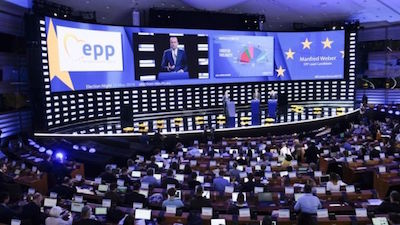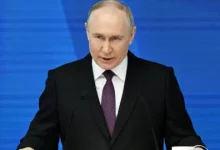
The big centre-right and centre-left blocs in the European Parliament have lost their combined majority amid an increase in support for liberals, the Greens and nationalists.
Pro-European Union (EU) parties are still expected to be in a majority but the traditional blocs will need to seek new alliances.
The liberals and Greens had a good night, while nationalists were victorious in Italy, France and the UK.
Turnout was the highest for 20 years, bucking decades of decline.
Just under 51per cent of eligible voters across the 28 member states cast their ballots, compared with fewer than 43 per cent in 2014.
Although populist and far-right parties gained ground in some countries, they fell short of the very significant gains some had predicted.
The centre-right European People’s Party (EPP) remains the largest bloc and analysts say it is likely to form a grand coalition with the Socialists and Democrats bloc, with support from liberals and the Greens.
In the UK, the newly-formed Brexit Party claimed a big victory, and a strong performance by the Liberal Democrats came amid massive losses for the Conservatives and Labour.
The European Parliament helps shape EU legislation and the results will play a big part in who gets the key jobs in the European Commission, the Union’s executive.
Based on current estimates, the previously dominant conservative EPP and Socialists and Democrats blocs will be unable to form a “grand coalition” in the EU parliament without support.
The EPP was projected to win 179 seats, down from 216 in 2014. The Socialists and Democrats looked set to drop to 150 seats from 191.
Pro-EU parties are still expected to hold a majority of seats, however, largely due to gains made by the liberal ALDE bloc, and particularly a decision taken by the party of French President Emmanuel Macron to join the group. His Renaissance alliance was defeated by the far-right National Rally of Marine Le Pen.
“For the first time in 40 years, the two classical parties, socialists and conservatives, will no longer have a majority,” said Guy Verhofstadt, the leader of the ALDE.
“It’s clear this evening is a historical moment, because there will be a new balance of power in the European Parliament,” he said.
There were major successes for the Greens, with exit polls suggesting the group would jump from 50 to around 67 MEPs. –BBC






